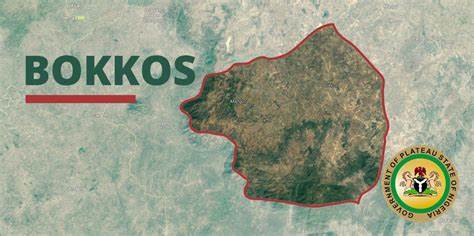The charming landscapes of Bokkos Local Government Area in Plateau State, Nigeria, continue to be stained by the habitual waves of violence and silent killings that have left marks of sorrow and despair. Despite numerous efforts by the Federal and State Governments, Security Agencies and Local Hunters for enhanced security and intervention, the phantom of death remains, challenging the resilience of its people and carving deep-seated scars in the community fabric. The coordinated and sustained recurring silent killings have evaded headlines yet destroyed communities and fostered an atmosphere of fear and mistrust.
The Predicament of Bokkos People
Historically known for its agronomic prosperity and cultural heritage, Bokkos is now more frequently associated with the bloodshed of innocent lives, mostly killed in their sleep or on their farms in a synergized attack by Fulani herdsmen with the sole aim of making them refugees in their homeland, a strategic plot to displace the inhabitants and take over their lands.
Blessed with fertile highlands, rolling hills, serene pastures and a high agrarian productivity which understandably attract pastoring and grazing by Fulani, a silent and persistent tragedy unfolds to turn a peaceful and prosperous endowment bestowed upon Bokkos by fortune and nature into an ocean of tears and hills of sorrow.
Turbulent Tale Of Terror And Tears
On the 1st May, 2024, the people of Goksar Tangur, woke up with high hopes of entering the month of May, a month that ushers heavenly blessings of rain for them that would translate into their economic empowerment in the next three months because of the rich arable land the village is blessed. The excitement and anticipation, however, turned into an unabated tale of tears as the harmless community was overrun by the gunmen.
According to a depressed villager, “they came with machines (motorcycles), three people on one in the evening and they opened fire in the Tasha (Junction). My friend, Mutong Noel was killed, we buried him on the 2nd May, 2024”
On the 2nd May, 2024, Mandung Ruwi was the next village on their roaster to be subjected to terror and horror. According to an eye witness who narrated their ordeal to www.pointblank.com.ng, he said “this evening, they entered Mandung Wuri. Now 3 people are dead out of the 9 attacked. We don’t know if others will make it. Let’s keep on praying”
Friday, 3rd May, 2024 was punctuated with yet another sorrow. “Their was a guy (Stephen Mawuwan) from Fereyinti in Dakanung that was missing last week but today, it was found out that they killed and buried him at Barkin Ladi” narrated another bereaved villager to www.pointblank.com.ng
On Thursday, 9th May, 2024 “Fulani people were asked not to encroach into a land in certain part of Mangu LGA so on their way coming returning to the same place they were denied access earlier, they killed one youth from Dakanung, around Bokkos Farm Project, BFT. The thing wasn’t good. People were just crying so until this morning that we will identify the person killed”
The account of the devastating daily silent annihilation is endless
Review Of Current Security Deficiencies And Solutions
The current reactionary security measures of the security agencies and lack of actionable intelligence, coupled with insufficient manpower are major encumbrances in the military quest to halt the spate of silent killings
The disconnect that exists between local communities and security agencies keeps exacerbating the cycle of violence and distrust. To mend this, there must be active engagement with local community leaders, recognising their influence and ability to gather reliable information. The military must deliberately work on this with the local communities to ensure a proactive approach is adopted instead of reactionary after lives are lost
A Call to Rethink Security Strategy
The horrendous human cost requires a noteworthy overhaul of security mechanisms and strategies. The current efforts, while often well-intentioned, remain ineffective in subduing the tensions or preventing the loss of life. A new strategy must incorporate local dynamics and engage community leaders that will usher in a paradigm shift from reactionary to a blended approach that bolsters both prevention and response.
